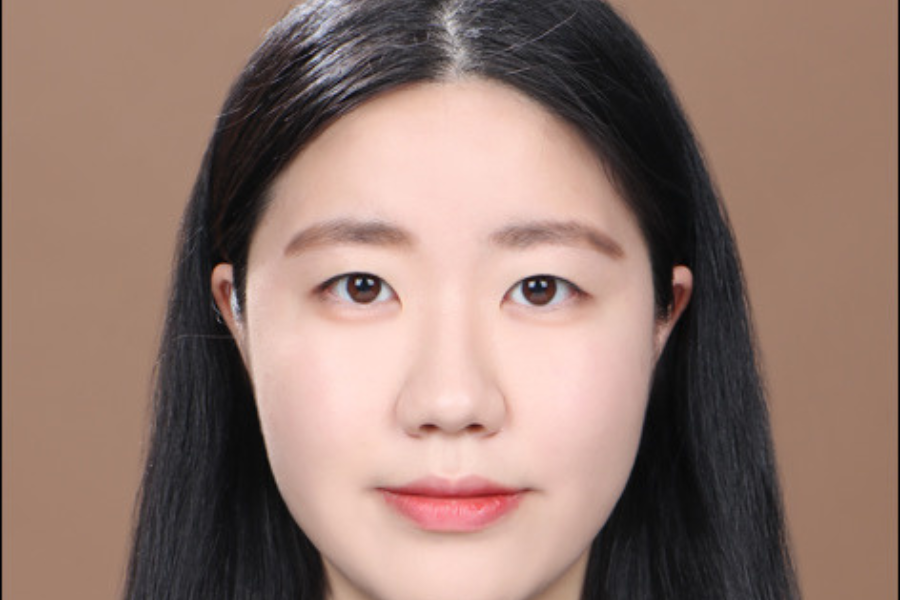Yeeun Jeong

"Better late than never!"
College: Education
Degree Program: Sport Management
Degree: Master's
Why FSU?
There are two major reasons I chose to attend FSU for my master’s degree. First, the Sport Management Program at FSU has been top-ranked in the United States. The program provides various opportunities to learn academic knowledge from high-quality classes and to have practical experiences in the sports industry. Second, I wanted to work with my current major professor, Dr. Amy Kim, at FSU. Dr. Kim has always supported me to develop my research-based skills and to be successful as a thesis-track master’s student in Sport Management.
Motivation to pursue a graduate degree
I have a bachelor’s and master’s degree in physical education from South Korea. I took various core and elective courses including sport pedagogics, sport sociology, sport rehabilitation, sport ethics, sport psychology, and sport management. When I was in a sport management class about five years ago, I had a chance to research the landscape of the sport industry in the United States. I realized that the US sport industry is massive and is growing steadily every year, which indicates that the sport market in the US has bright prospects in the future. Thus, I wanted to learn more about the advanced US sport industries (e.g., how to manage sport organizations effectively and efficiently, how to set the appropriate policy for various athletes, and how to promote the global sport event).
Importance and/or impact of research and work
The research area I am interested in is promoting sport participation among various types of people (e.g., youth, adolescent, adult, and seniors) in different contexts (e.g., recreational sports, professional sports, and mega sport events), which enhances one’s health/well-being physically, socially, and psychologically. My master's thesis examines the relationship between two profiles of Sport Commitment (i.e., Enthusiastic Commitment and Constrained Commitment) and mental health outcomes (i.e., stress, anxiety, depression, happiness, psychological well-being) among non-student-athlete college students. There has been a controversy about whether a higher level of commitment to sport is good for one’s mental health or not. On one hand, a higher commitment is known to be good for one’s self-efficacy and happiness. On the other hand, it is known to result in higher levels of stress and anxiety along with burnout. I believe the findings in this area have been fragmented and contradictory because of overlooking two different profiles of commitment. Enthusiastic Commitment is related to “want to,” while Constrained Commitment is related to “have to.” By examining the effect of these two different profiles of sport commitment on one’s mental health, I would like to provide a future direction for practitioners (e.g., coaches, managers) and scholars on how to develop, manage, and address two different types of sport commitment for maximizing one’s mental well-being and reducing one’s mental issues such as exhaustion, burnout, and depression.
Career aspirations
As a master's student, I would like to continue my PhD in Sport Management at Florida State University. After completing my doctoral degree, I am planning to proceed to a postdoctoral position and ultimately become a researcher and a professor in the area of Sport Management.
Advice for anyone considering graduate school
One thing I want to tell them is, “Better late than never.” At first, I thought it was impossible to study in the United States as an international graduate student with all the obstacles related to learning a new language and adapting to a different culture. Despite the fact that I had aspirations to study in the US, I decided to continue my master’s program in South Korea. However, I did not give up my dream to study in the US. For me, it took almost three years for that dream to come true. I know that a lot of people tend to be hesitant to study abroad because of various reasons, including language, culture, family, friends, and cost. It is an undeniable fact that graduate school can require giving up many things (e.g., earning money and spending a lot of time on playing). But, at this moment, I have been enjoying writing the thesis, presenting my work at conferences, and conducting research projects with diverse colleagues as a graduate student. These have been invaluable experiences for me to grow.
Advice for anyone considering graduate school
As a volunteer, I had opportunities to participate in the Reach One Sports Program for underserved youth, a physical education class for high school students, and Miracle Sports, an organization focused on recreation for youth and children with disabilities and no disabilities. All these programs were great positive sports-related experiences for underserved youth and children including those with disabilities. I learned how to manage diverse sport programs by using effective and efficient teaching styles and creating an inclusive learning environment. Additionally, I was a member of the Center for Sport, Health, and Equitable Development (SHED) led by Dr. Kim. As a researcher, I participated in the “Dribble4Change” project, which aims to examine the effectiveness of a mobile-app-guided soccer program for promoting physical activity and enhancing mental health among older people. From these valuable experiences, I could observe how sport participation can have a significantly positive impact on physical health, psychological well-being, and social health among youth, children, and older people.
